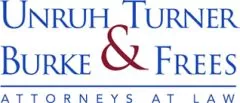Zoning and land development are two related, but separate, concepts. The Pennsylvania Commonwealth Court recently highlighted this difference in the context of a land development application in the case of In Re: Appeal of Jaindl Land Company and RCSVP-Chambersburg, LLC.1 The decision focused chiefly on whether the "pending ordinance doctrine," as it is called, applied to land development applications filed after an ordinance amendment was advertised, but not yet adopted, by the township.
Looking at a long line of case law, the Jaindl court explained that the pending ordinance doctrine traditionally forces an applicant for a building permit to operate under the rules of a new pending ordinance, if at the time of the application, the governing body had "resolved to consider a particular scheme of rezoning and ha[d] advertised to the public its intention to hold public hearings on the rezoning."
However, the court also explained a very important caveat, carving out special protections under the Municipalities Planning Code ("MPC") for land development (rather than permit) applications. The court stated:
In essence, the adoption of section 508(4)(i) of the MPC modified the applicability of the pending ordinance doctrine and precluded a municipality from changing its "zoning, subdivision or other governing ordinance or plan" after the filing of a land development application and then applying the new ordinance to the pending application. 53 P.S. § 10508(4)(i).
Here is how this distinction played out in Jaindl. The applicants submitted a preliminary land development application in Greene Township, Franklin County for the construction of an industrial warehouse in a zoning district that – at the time – permitted the use by right. However, at the time of the application, the township board of supervisors had also proposed and publicly advertised – but not yet adopted – an ordinance that would have changed the zoning district to no longer allow warehouses as permitted uses. Two weeks after receiving the application, the township voted to adopt the ordinance.
Then, the township zoning officer denied the application, applying the pending ordinance doctrine to find that the application was subject to the newly-enacted ordinance and not the prior ordinance. This would mean that the warehouse project was not permitted. The applicants filed a series of appeals to the township zoning hearing board and trial court, which both ruled in favor of the township.
On appeal, the Commonwealth Court held that since the application involved land development, and not simply a permit application, the municipality could not apply its new ordinance against the applicant. The MPC defines "land development," in relevant part, as [t]he improvement of one lot . . . for any purpose involving . . . single nonresidential building on a lot. . . ."2 The court found that the application to build a warehouse in Jaindl clearly constituted land development, as defined by the MPC.
Additionally, the court noted that the township's advertisement of the new ordinance prior to submission of the application was irrelevant since the pending ordinance doctrine would not apply to the land development application in the first place. The court therefore reversed the rulings of the trial court and the zoning hearing board.
As a practical matter, the Jaindl case is a potent reminder for municipalities to be alert to distinctions between permit applications and subdivision and land development applications in analyzing the pending ordinance doctrine. Practitioners will also note that there are some continuing grey areas in factually unique cases, which the Jaindl court distinguished.3 When in doubt, always consult with counsel.
Footnotes
1. In re Jaindl Land Co., 284 A.3d 1314 (Pa. Commw. Ct. 2022).
2. 53 P.S. § 10107(1)(i).
3. See Dep't of Gen. Servs. v. Bd. of Supervisors of Cumberland Twp., Adams Cnty., 795 A.2d 440 (Pa. Commw. Ct. 2002).
Originally published January 26, 2023
The content of this article is intended to provide a general guide to the subject matter. Specialist advice should be sought about your specific circumstances.


